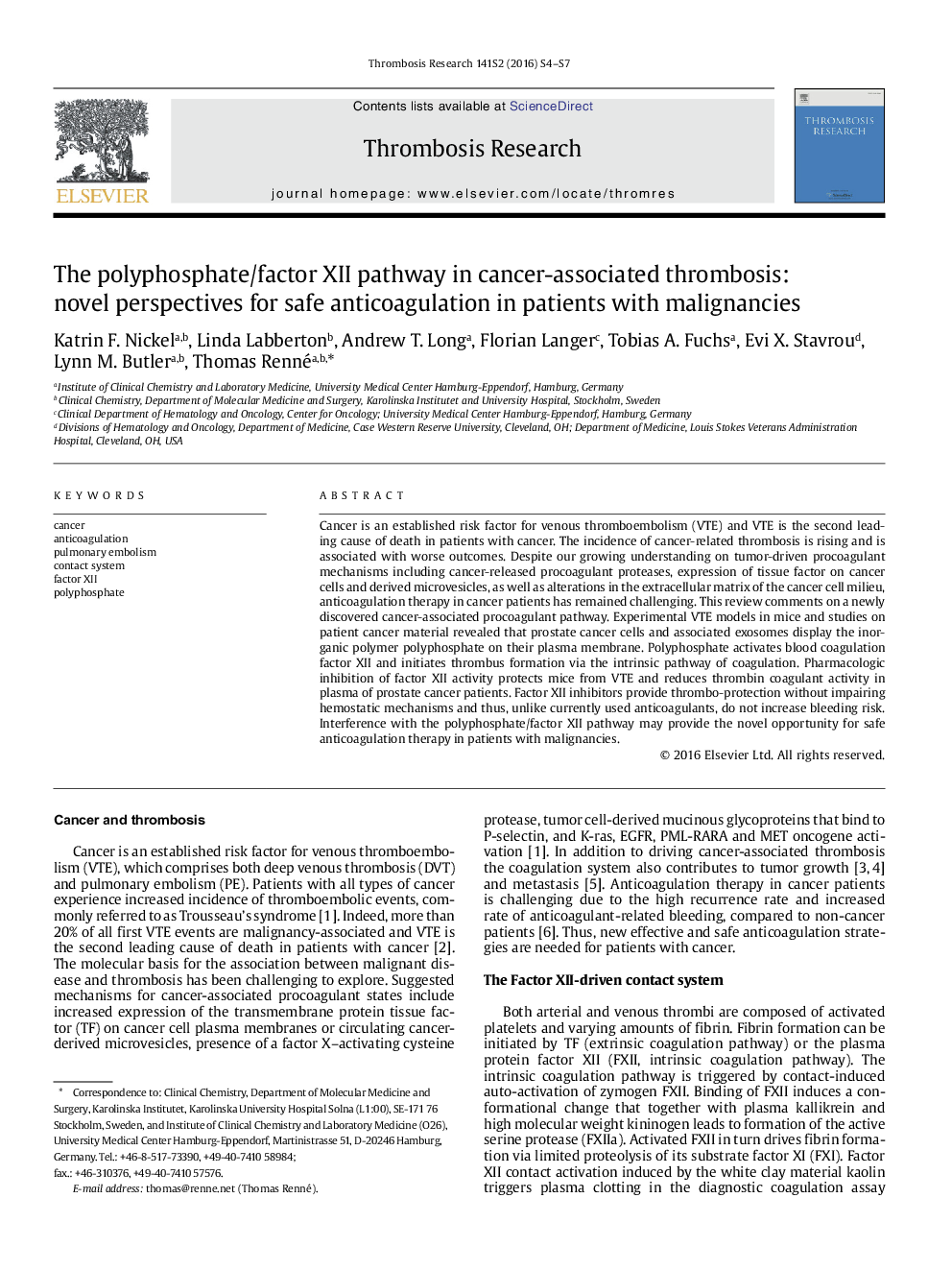| Article ID | Journal | Published Year | Pages | File Type |
|---|---|---|---|---|
| 3026793 | Thrombosis Research | 2016 | 4 Pages |
Cancer is an established risk factor for venous thromboembolism (VTE) and VTE is the second leading cause of death in patients with cancer. The incidence of cancer-related thrombosis is rising and is associated with worse outcomes. Despite our growing understanding on tumor-driven procoagulant mechanisms including cancer-released procoagulant proteases, expression of tissue factor on cancer cells and derived microvesicles, as well as alterations in the extracellular matrix of the cancer cell milieu, anticoagulation therapy in cancer patients has remained challenging. This review comments on a newly discovered cancer-associated procoagulant pathway. Experimental VTE models in mice and studies on patient cancer material revealed that prostate cancer cells and associated exosomes display the inorganic polymer polyphosphate on their plasma membrane. Polyphosphate activates blood coagulation factor XII and initiates thrombus formation via the intrinsic pathway of coagulation. Pharmacologic inhibition of factor XII activity protects mice from VTE and reduces thrombin coagulant activity in plasma of prostate cancer patients. Factor XII inhibitors provide thrombo-protection without impairing hemostatic mechanisms and thus, unlike currently used anticoagulants, do not increase bleeding risk. Interference with the polyphosphate/factor XII pathway may provide the novel opportunity for safe anticoagulation therapy in patients with malignancies.
